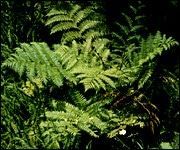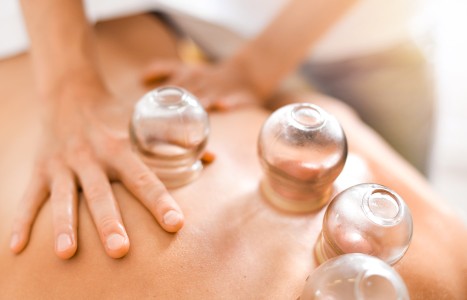Whether you accept it, avoid it or live somewhere in between, insurance coverage has become a defining issue for our profession. Patients increasingly expect to use their benefits, practitioners want to be compensated fairly for their time and expertise, and the system itself remains – at best – fragmented. The encouraging news is that coverage has expanded in meaningful ways. The challenging news is that reimbursement, across the board, remains inadequate.
Herbs & Botanicals
Lygodium (hai jin sha)
What is lygodium? What is it used for?
Lygodium is a type of climbing fern native to Japan; it also grows in the southeastern part of the United States. Some varieties of lygodium can reach more than 100 feet in length, with small, leafy branches and lobed leaflets that produce the plant's spores.
The spores are used in herbal remedies. They are gathered in the fall and dried in the sun. The spores contain a variety of chemicals, including a version of coumaric acid, caffeic acid, and lygodin.
 According to traditional Chinese medicine concepts, lygodium has sweet and cold properties, and is associated with the Bladder and Small Intestine meridians. Its primary functions are to clear heat and to regulate a person's urination. Among the conditions the lygodium spores can treat are sore throats, turbid urine, dysuria, frequent urination, and stones that develop in the urinary tract. Lygodium is typically used with talc, plantain seeds and amber as part of a larger formula.
According to traditional Chinese medicine concepts, lygodium has sweet and cold properties, and is associated with the Bladder and Small Intestine meridians. Its primary functions are to clear heat and to regulate a person's urination. Among the conditions the lygodium spores can treat are sore throats, turbid urine, dysuria, frequent urination, and stones that develop in the urinary tract. Lygodium is typically used with talc, plantain seeds and amber as part of a larger formula.
How much lygodium should I take?
The typical dose of lygodium is between 6 and 12 grams, boiled in water and drunk as a decoction. If being taken as a decoction, the herb should be wrapped on cloth or placed in a strainer. Some practitioners may recommend larger doses (between 15 and 60 grams).
What forms of lygodium are available?
Powdered lygodium spores are available at most Asian markets and herbal shops. Lygodium spores can also be found in pill and capsule form, and in some larger herbal remedies.
What can happen if I take too much lygodium? Are there any interactions I should be aware of? What precautions should I take?
There is anecdotal evidence that extremely large doses (> 150 grams, 10 times the recommended dosage) of lygodium spores may cause side-effects such as numbness, nausea, and headaches. Aside from isolated cases such as these, lygodium is considered safe.
As of this writing, there are no known drug interactions associated with lygodium. As always, make sure to consult with a licensed health care provider before taking lygodium or any other herbal remedy or dietary supplement.
References
- Chen JK, Chen TT. Chinese Medical Herbology and Pharmacology. City of Industry, CA: Art of Medicine Press, 2004, pp. 415-416.
- Kurumatani M, Yagi K, Murata T, et al. Isolation and identification of antheridiogens in the ferns, lygodium microphyllum and lygodium reticulatum. Biosci Biotechnol Biochem October 2001;65(10):2311-4.
- Matsuda H, Yamazaki M, Naruo S, et al. Anti-androgenic and hair growth promoting activities of lygodii spora (spore of lygodium japonicum) I. Active constituents inhibiting testosterone 5 alpha-reductase. Biol Pharm Bull May 2002;25(5):622-6.
- Taylor RS, Manandhar NP, Hudson JB, et al. Antiviral activities of Nepalese medicinal plants. J Ethnopharmacol July 5, 1996;52(3):157-63.
- Yamauchi T, Oyama N, Yamane H, et al. Biosynthesis of GA73 methyl ester in lygodium ferns. Plant Physiol March 1997;113(3):773-778.


